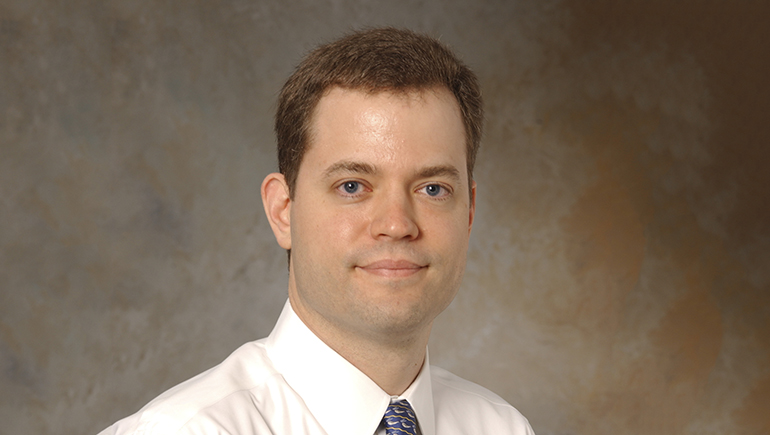
Dr. Scott Gettinger, Associate Professor of Medicine in Yale Cancer Center's Section of Medical Oncology
While I-O treatments are still in their infancy, we are seeing some promising data on survival. Who could have imagined this would have been possible when we began our clinical studies less than a decade ago?
I’m greatly encouraged by the potential of I-O therapies, but there’s so much more for us to learn. From my perspective, the biggest and most urgent challenge in I-O research is how to apply our growing base of research to develop effective therapies for patients with cancer who do not respond to currently approved therapies. Perhaps other immunotherapies, or combinations of immunotherapies with other therapies, will help patients who have not responded to other therapies or have developed resistance to them.
We need to continue researching the interaction between cancer and the immune system, and what that can tell us about potential biomarkers and resistance to treatment. Biomarkers are signals that may be used to measure different aspects of disease or response to disease treatment in a patient’s body. Expanding our knowledge of biomarkers could be helpful in informing potential therapeutic strategies. We can build upon our knowledge and potentially identify additional biomarkers to guide future research. We also hope one day to use biomarkers to help determine which treatments may work for a particular patient based on her or his type and stage of cancer. For example, researchers are assessing whether there is a connection between levels of tumor mutational burden and patient responsiveness to I-O therapies.
Looking ahead, we need to continue collaborative efforts across academic research centers and pharmaceutical companies to accelerate our progress. If we can synthesize our findings, we will undoubtedly advance our understanding of a complex disease and potential ways to address cancer with different treatments and combinations.